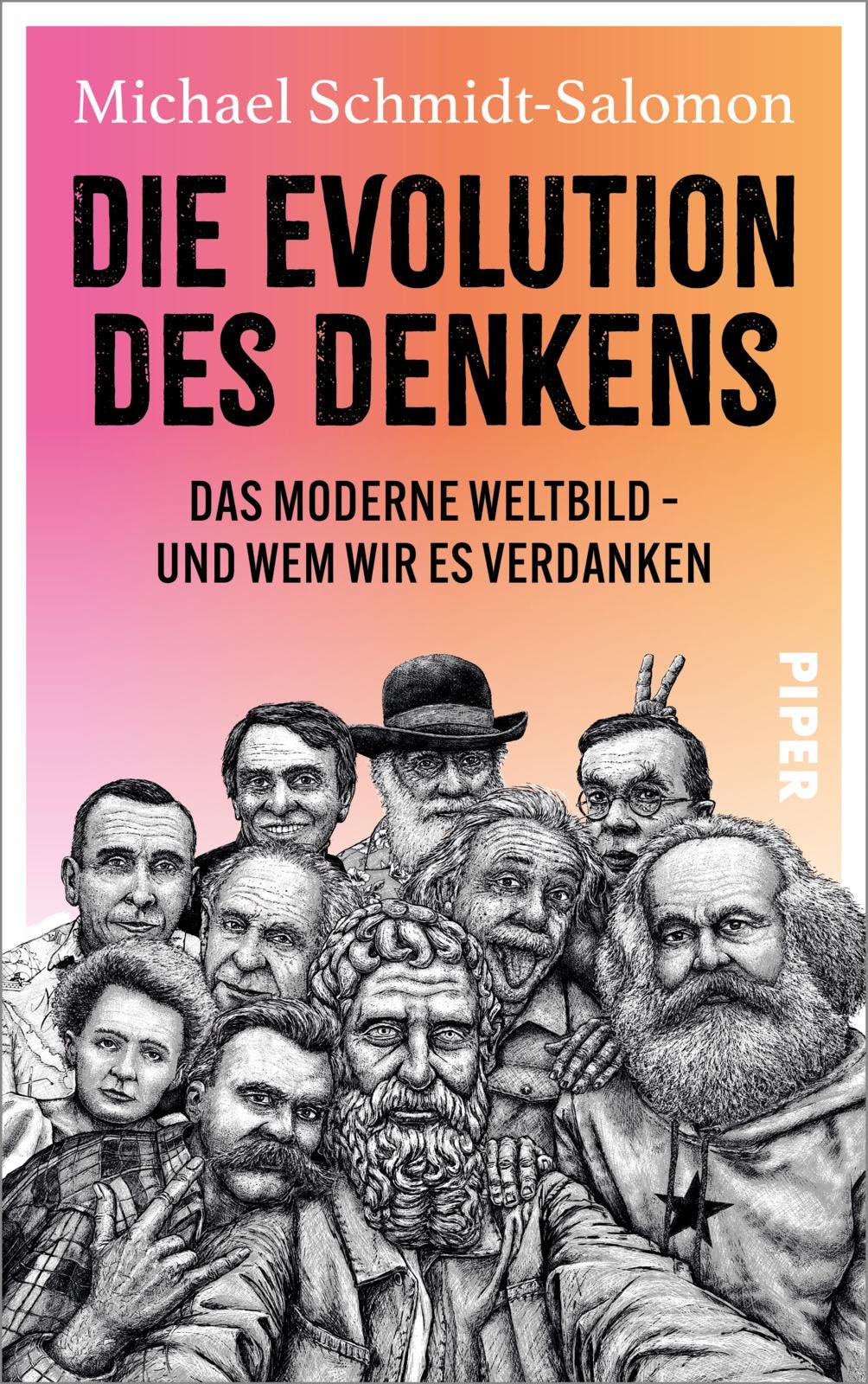How has our thinking and therefore our worldview changed over time? One might assume that humanity's cognitive development is shaped primarily by changes in the brain. This also applies to most stages of human evolution: from about two million years ago until the first appearance of Homo sapiens in Africa 300,000 years ago. An evolution towards a larger and more complex thinking apparatus can also be observed in the next 265,000 years. However, this process appears to have remained stagnant over the past 35,000 years. The changes in perception and thinking since then do not appear to have a physiological basis.
But what has defined our worldview since then? Michael Schmidt Salomon argues that humanity has been advanced in its modern history primarily by the great thinkers and those around them. Therefore, it is not only these few people to whom the author attributes this influence, but also the era in which they and their contemporaries lived. For Schmitt-Salomon, ideas are always the result of the interaction between personality, place, time and environment.
Schmidt Salomon, philosopher, author, and founder of the Giordano Bruno Foundation, is perhaps best known to most people as an influential religious critic and media figure. In his book “The Development of Thought,” he presents ten important figures who, according to him, had a lasting influence on our view of the modern world. He then ventures a look at possible changes in the future. As always with such lists, the question is one of choice. The author addressed this in the introduction. First, he emphasizes that one person cannot come up with a pioneering idea alone, in a vacuum, so to speak. He points out that his compilation is not comprehensive – it is about ten important figures, but not the ten most important figures. It is noted that these are mostly characters from the Western Hemisphere and that women are significantly underrepresented. This may be due to the fact that certain conditions must be met for free thinking and new ideas to have a lasting impact on an era, and therefore women and people from other areas of the world were unable to make this impact. Until a few decades ago, there were no opportunities for women to engage in institutional research and intellectual work in existing patriarchal structures. The same is true for people in the Global South in colonial times.

“Explorer. Communicator. Music geek. Web buff. Social media nerd. Food fanatic.”







More Stories
A fossilized creature may explain a puzzling drawing on a rock wall.
MrBeast Sued Over ‘Unsafe Environment’ on Upcoming Amazon Reality Show | US TV
Watch comets Lemmon and SWAN approach Earth today